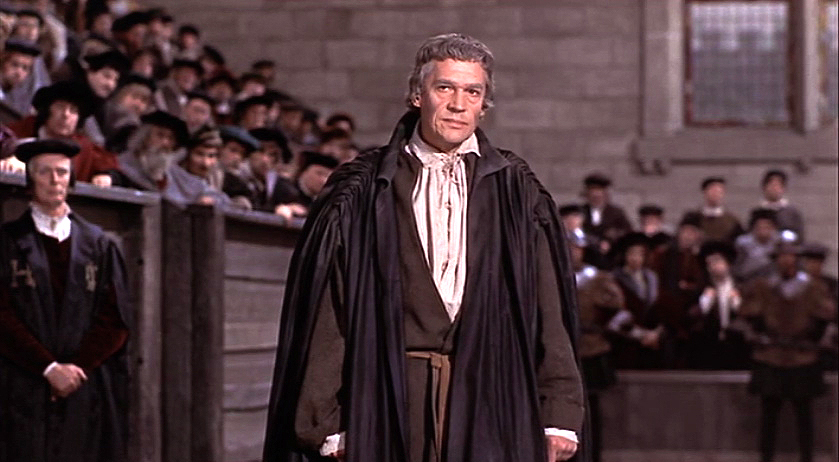In 2014, the Republican Party seemed perfectly positioned to reverse the disastrous economic, social, and political consequences of the Obama presidency. Not only did Republicans win both houses of Congress, they also controlled thirty state legislatures and thirty-two governorships. With an extraordinarily weak Democratic field of presidential candidates, Republican control seemed well within sight.
Now these well-founded hopes are on the brink of collapse, and Donald Trump is threatening to strip Paul Ryan, the Republican Party’s most principled and prudent statesman, of the GOP convention chairmanship. In their legitimate anger with the lawlessness of one demagogue, Republicans are about to throw themselves into the arms of another, destroying for the indefinite future their best opportunity to put America back on the path to sanity. Unless something unexpected happens, Americans will face a terrible choice in November.
Among the many causes for this perilous state of affairs, surely one of the most important is a perverse political perfectionism that has caused rank and file conservatives to be either too idealistic about what politics can achieve, or—when those expectations are disappointed—too cynical about the value of incremental change. This misguided political idealism, motivated by a genuine love of justice, partly explains the anger that animates conservative supporters of Trump.
Passion, Prudence, and Principle
Start your day with Public Discourse
Sign up and get our daily essays sent straight to your inbox.In a previous essay for Public Discourse, I warned of the dangers that passion—especially the passion of anger—poses to political life, and I emphasized the necessity of moderation and prudence for free government.
As Thomas Aquinas points out, unlike purely evil passions, such as envy or greed, anger is “good in so far as it is regulated by reason, whereas it is evil if it sets the order of reason aside” (ST II, 158, 1). In the words of Allan Bloom, anger “may be a most noble passion and necessary for fighting wars and righting wrongs. But of all the experience of the soul it is the most inimical to reason.” Anger requires both moderation and prudence, which guide practical reason to “truth in action” (as Aristotle puts it). Thus prudence can never be divorced from what is truly right and good.
It was Machiavelli who first defended a view of prudence divorced from the good. In his view, prudence is simply an efficient means to whatever one happens to desire. It is only in this Machiavellian sense that a “prudent thief” is possible; Aristotle and his successors would have found such a notion unintelligible. When prudence comes to be understood as mere “cleverness,” however, it casts a dark shadow of suspicion on prudence as a cowardly and calculating compromise with principle.
This divorce between principle and prudence has made false political idealism seem attractive. It has also made prudence one of the most difficult virtues to understand and to defend in our current political climate. But if we want a just society, we must begin by recovering the right understanding of prudence. There is perhaps no better way to begin such a recovery than by studying the patron saint of statesmen, Thomas More.
Prudence and the Law: A Lesson from A Man for All Seasons
In Act One of Robert Bolt’s 1960 play A Man for all Seasons, Thomas More has an animated argument with his future son-in-law, William Roper. Prior to this argument, Thomas More has just refused the pusillanimous Richard Rich a job. Both More and Roper have strong reasons to believe that Rich is spying for the king. As Rich is departing, the evidently angry Roper urges More, who is the Lord Chancellor of England, to arrest him.
“For what?” More asks.
“For libel; he’s a spy,” Roper replies.
More’s daughter chimes in: “Father, that man’s bad.”
“There is no law against that,” More replies.
To this, Roper responds, “There is! God’s law!”
When More declares that he would let “the devil himself [go free] until he broke the [human] law,” Roper bursts out with incredulity:
“So now you would give the Devil benefit of law! . . . I’d cut down every law in England [to get after the Devil]!” This sets up More’s memorable reply:
Oh? And when the last law was down, and the Devil turned round on you—where would you hide, Roper, the laws all being flat? This country’s planted thick with laws from coast to coast—man’s laws, not God’s—and if you cut them down—and you’re just the man to do it—d’you really think you could stand upright in the winds that would blow then? Yes, I’d give the Devil benefit of law, for my own safety’s sake.
When Roper accuses More of setting “Man’s law above God’s” More replies, “Let me draw your attention to a fact—I’m not God.”
More’s brilliantly understated response to Roper highlights the perversely ironic quality of Roper’s attitude and argument. Roper’s righteous anger against the Devil himself exemplifies the ultimate passion for justice and serves to justify his belief that all earthly restraints in pursuit of that passion are a cowardly compromise with injustice. But in assuming this position, Roper is in fact arrogating to himself a God-like status. Roper’s self-righteousness conceals a deeper pride, a pride that is all the more dangerous because it is able to mask itself as humility.
Not surprisingly, the Devil in More’s example uses exactly this carefully concealed pride to lead man to destroy the hindrances to the Devil’s work. Human law is in fact God’s natural provision for human beings, who lack God’s perfect knowledge and moral rectitude. The angry ambition to repudiate the finite mediating forms of human law as an obstacle to perfect justice is ultimately animated by a gnostic desire to escape the natural finitude of the human condition. The historical result is nearly always demonic.
Utopia: Making the Best the Enemy of the Good
Although this conversation is fictional, Bolt reveals in it a deep understanding of More’s own mind. In More’s own literary work, Utopia, written in 1516 (just three years after Machiavelli’s The Prince and three years before More entered the council of King Henry VIII), More explores with great subtlety and wit the dangerous dynamics of anger and political idealism.
Readers of Utopia ordinarily take its satire to be directed at the imperfect political institutions of sixteenth-century England. In many important respects, it is. But what they often miss is the equally earnest satirical indictment of the person who delivers that harangue, Raphael Hythloday, whose name can be translated as “Healing Nonsense.”
The literary context for Hythloday’s description of Utopia, which takes up almost the entire portion of Book II, is Hythloday’s denial that any good can be done by advising kings. This question is the same as the question whether any good can be gained from engaging in politics. When More and Peter Giles demur, Hythloday replies with a series of examples purporting to show how much human envy, greed, vanity, and other vices prevent political improvement. Notably, in each case Hythloday contrasts the actual practices he is condemning with idealized examples from fictional regimes he has supposedly encountered on his journeys.
While Hythloday believes that this contrast between the real and the imagined ideal justifies his political pessimism, More sees in it the source of the problem. “To tell you the truth, I don’t think you should thrust forward ideas of this sort,” More remarks to Hythloday, “or offer advice that you know for certain will not be listened to. What good can it do? When your listeners are already prepossessed against you and firmly convinced of opposite opinions, how can you win over their minds with such out-of-the-way speeches?”
Hythloday takes this as an admission of his point that “There is no place for philosophy in the council of kings.” Politics, Hythloday suggests, is impervious to truth. This provides the occasion for More’s core point:
‘Yes, it is true’, I said, “that there is no place for this school of philosophy which supposes every topic suitable for every occasion. But there is another philosophy, better suited for the role of a citizen, that takes its cue, adapts itself to the drama in hand and acts its part neatly and appropriately. This is the philosophy for you to use . . . If you cannot pluck up bad ideas by the root, or cure longstanding evils to your heart’s content, you must not therefore abandon the commonwealth. Don’t give up the ship in a storm because you cannot hold back the winds . . . Instead, by an indirect approach, you must strive and struggle as best you can to handle everything tactfully—and thus what you cannot turn to good, you may at least make as little bad as possible. For it is impossible to make everything good unless all men are good, and that I don’t quite expect to see for quite a few years yet.
More’s comments highlight the central flaw in Hythloday’s understanding: He lacks both moderation and prudence. Hythloday commits the idealist’s error of making the best the enemy of the good, with the result that both the best and the good are lost.
A Prudential Remedy for Idealism
More does not object to “school philosophy,” which provides the principles for human action. But school philosophy requires “citizen philosophy” in which those principles are applied to the complex, concrete conditions of human life. As Alasdair MacIntyre points out in After Virtue,
Only in fantasy do we live what sort of story we please. In life, as both Aristotle and Engels noted, we are always under certain constraints. We enter upon a stage which we did not design and we find ourselves part of an action that was not of our own making.
It is the work of prudence to acknowledge those imperfect conditions, and to bring the best possible good from them.
Hythloday’s response to More’s appeal to the “indirect method” is deeply revealing: “If I wish to speak the truth, I will have to talk in the way I’ve described. Whether it’s the business of a philosopher to tell lies, I don’t know, but it certainly isn’t mine.” It is not that Hythloday merely lacks prudence; like Roper, he regards prudence as a moral failing. Any actions that are not directly in the service of the pure moral ideal are evil.
This fantasy is not far from the fanaticisms that have inflicted so much death and destruction upon the modern world, and which continue to provide the greatest challenges for our time. But at a lesser level, it is also the source of a political cynicism that makes the resistance to evil much more difficult.
More’s most revealing statement comes at the end of Hythloday’s long and uninterrupted description of Utopia: “I was not sure he could take contradiction in these matters . . . So with praise for [the Utopians’] way of life and his account of it, I took him by the hand and led him in to supper.” The prudential remedy for idealism, More suggests, is not simply argument, but a return to the simple, concrete realities of embodiment and conviviality.
But lest we think More’s account of prudence is a cowardly compromise with principle, we should recall that it was sealed with his life. Within a few years of completing Utopia, More would take his own advice and enter into the king’s service. This fateful decision would eventually lead to his martyrdom. This did not represent a departure from prudence, however, but its fulfillment.
Prudence does not guarantee worldly success, and it certainly is not a flight from suffering and death. Unless one reckons rightly the meaning of the things that matter, one does not know how, and when, to sacrifice them.













